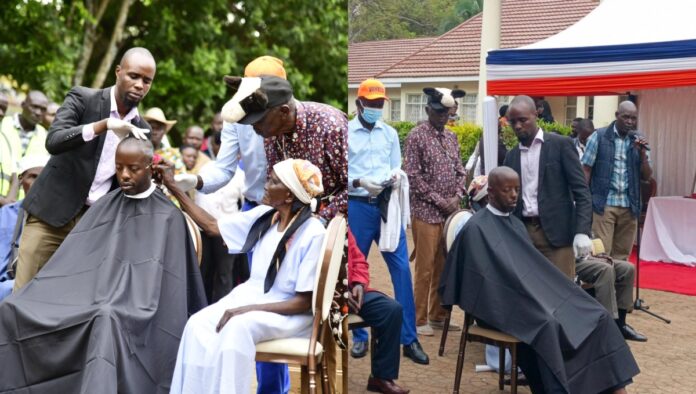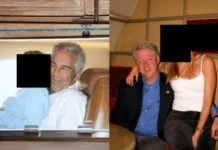Raila Odinga’s surviving son, Junior, was on Thursday, October 23, officially recognised as the new family head in an intimate and important ritual just three days after the burial of the former Prime Minister.
Preparations for the ceremony at the late Raila Odinga’s Opoda Farm in Bondo began in earnest on Thursday, marked by a traditional shaving ritual known locally as liedo. This rite ushered in the symbolic transfer of leadership within the homestead to the next male heir.
The solemn ritual, steeped in Luo tradition, signifies renewal and transition after the passing of a family patriarch. Sitting quietly on a traditional stool, Raila Junior submitted to the elders as they gently shaved his head, a gesture of cleansing and continuity.
Watching closely was his uncle, Dr. Oburu Oginga, the elder brother of the late Raila Odinga, who served as his ‘god-father’ to the sacred act.
According to Luo customs, shaving the head after the death of the family head symbolizes the start of a new era for those left behind, a moment to let go of grief and step into renewed responsibility.
Once the ritual was complete, Raila Junior was officially installed as the new head of the Odinga family, formally taking over the mantle from his father.
Clutching a traditional spear and shield, emblems of strength, authority, and protection, he made his way to Kang’o Ka Jaramogi, where his father rests, to pay his respects.
The ceremony came just days after the passing of Raila Odinga on October 15, 2025, in India, where he had been receiving treatment.
A revered statesman and reformist, Raila was accorded a full state funeral, following President William Ruto’s directive.
During this year’s Mashujaa Day celebrations, President Ruto posthumously conferred on him the Chief of the Order of the Golden Heart (C.G.H); Kenya’s highest national honour, in recognition of his lifelong service to the nation.
As chants of song and memory echoed through Opoda, the day’s ritual carried both sorrow and renewal, the end of one era, and the quiet rise of another.



















